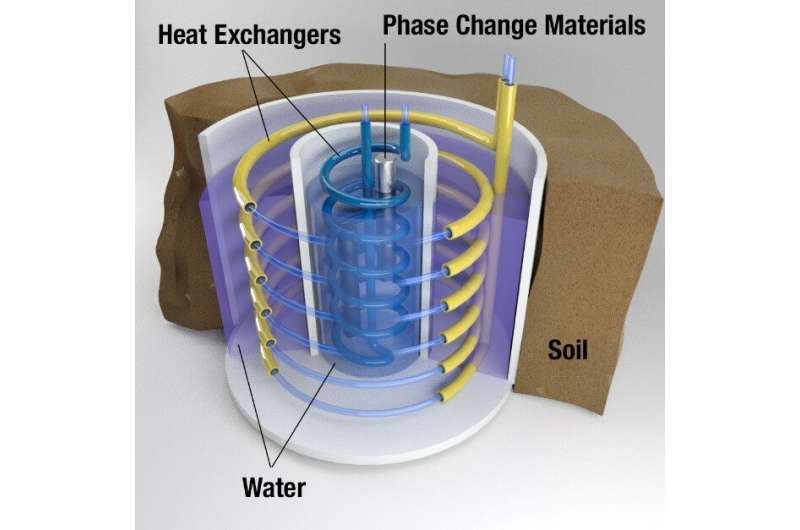Geothermal energy storage system to reduce peak electricity demand

Oak Ridge National Laboratory researchers created a geothermal energy storage system that could reduce peak electricity demand up to 37% in homes while helping balance grid operations.
The system is installed underground and stores excess electricity from renewable resources like solar power as thermal energy through a heat pump. The system comprises underground tanks containing water and phase change materials that absorb and release energy when transitioning between liquid and solid states.
ORNL's design relies on inexpensive materials and is installed at shallow depths to minimize drilling costs. The stored energy can provide hours of heating in the winter or cooling in the summer, shaving peak demand and helping homeowners avoid buying electricity at peak rates.
"Shifting demand during peak times can help utilities better manage their loads while saving consumers money and encouraging greater use of renewable energy," said ORNL's Xiaobing Liu.
The team published results of the system's performance from a simulation in Applied Thermal Engineering.
More information: Joseph Warner et al. A novel shallow bore ground heat exchanger for ground source heat pump applications—Model development and validation, Applied Thermal Engineering (2019). DOI: 10.1016/j.applthermaleng.2019.114460

















